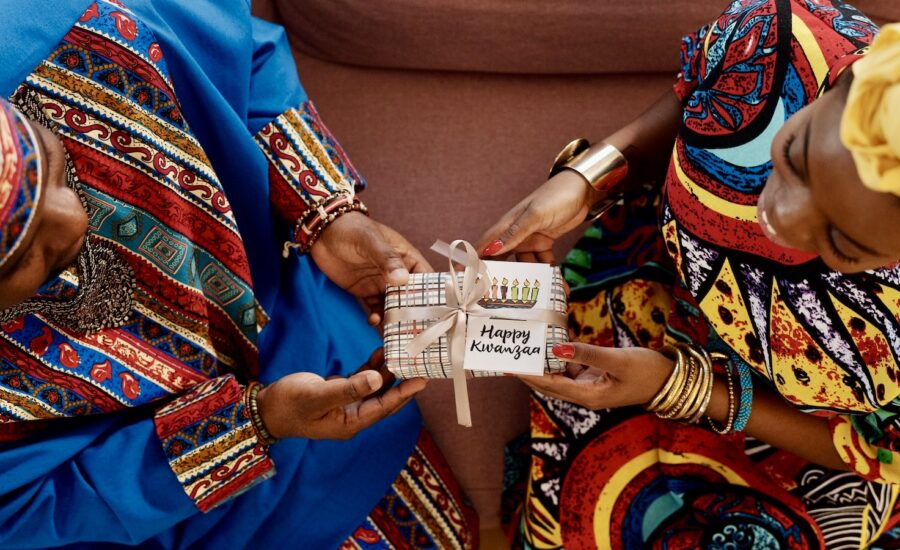Want to save money on gifts? Embrace holiday sales, and start early
It seems like Black Friday sales have been running since October. Find out why—plus which days of the week to avoid crowds at the mall.
Advertisement
It seems like Black Friday sales have been running since October. Find out why—plus which days of the week to avoid crowds at the mall.

Have you started your holiday shopping yet? Plenty of Canadians are hitting “Add to cart” extra-early, whether they’re buying for Christmas, Kwanzaa or Hanukkah. Last year, supply-chain issues frustrated shoppers. The shipping delays have improved somewhat this year, but now inflation and tighter household budgets are spurring many of us to buy ASAP, in case prices rise even more. Retailers got an early start, too—eager to unload overstocked inventories ahead of a possible recession; several stores began offering huge discounts as early as October.
If financial pressures are making you rethink your gift list, you’re in good company. Many Canadians are approaching holiday shopping this year with “cautious optimism and concern,” according to Deloitte Canada’s 2022 Holiday Retail Outlook, an annual forecast for retailers.
“What’s different this year, than any other year, is the messiness we have around us—geopolitical concerns, economic headwinds, the threat of recession, supply chain problems, and on and on,” says Marty Weintraub, national retail leader at Deloitte Canada. “This is the first time it’s all happened at the same time. If anything, the mood might be even darker than it was [when we did the survey].”
Highlights from Deloitte’s survey of 1,000 Canadians, conducted in early September, include:
Have you budgeted for holiday shopping?
— MoneySense (@MoneySense) November 10, 2022
To keep holiday spending in check, most Canadians are buying less, crossing names off their gift lists, and focusing on more meaningful purchases.
Many of us are cutting back, but it’s not impacting the giving spirit, says Deloitte’s report. “The biggest reductions are going to come from three categories that may surprise you,” says Weintraub. “One is non-gift electronics, 55% lower than last year. The second one is travel, down 30%, and the last is non-gift apparel, down 27%. Those are big, double-digit decreases, but you’ll notice none of those categories are gift-giving, which we define as gifts and gift cards—down 10% from last year. The big chunk that gets the 17% decrease overall is that we’re not going to buy stuff for ourselves or travel.”

Similarly, in another survey, the Retail Council of Canada found that eight in 10 Canadians plan to buy gifts, but more than half of respondents (62%) will shop for “more meaningful gifts for fewer people.”
Meanwhile, research by Interac found that two-thirds of Canadians are practicing “intentional spending,” which it defines as “the action of making purposeful purchasing decisions that live up to their financial goals and personal values.” For many, that includes holding off buying for at least a day, if the item is non-essential.
“These are challenging times for many consumers, and there is no easy solution,” says Nader Henin, AVP of digital and retail commerce products at Interac Corp. “Canadians tell us they are managing the current pressures they face by being very intentional in their spending.”
Rather than feeling restricted by “intentional spending,” eight out of 10 survey respondents felt more positive associations, like a sense of control, discipline, empowerment and/or thoughtfulness.
“Intentional spending doesn’t rule out the ability to indulge on what’s most important to you, but it does mean Canadians are weighing the value of each purchase before they make it,” says Henin. “Many customers are also making highly considered purchases which align with what they care about most deeply, and 62% say they want tools which encourage intentional spending.” (To that end, Interac has released a calming music track to listen to while shopping.)

It’s perhaps unsurprising that debit card usage has been trending upwards as we head into the busiest shopping time of the year. (Here’s how much debt Canadians have leading into the holidays.) Interac’s research found that four in 10 Canadians are hesitating to charge their purchases to credit cards.
Using a debit card can help people maintain control of their spending, says Henin. “They are focused on sticking with a budget, and are spending the money in their bank account—the money they own.”
And if you do use a credit card, ensure that your card’s points or cash back program rewards you for your holiday spending. Check the fees, too. You might be paying for perks you don’t really need or use.
If you’re shopping in person but can’t stand crowds, you may want to wait for Sunday. And Monday isn’t as “dead” at the mall as you might think. Here’s how the days of the week rank for busyness, in descending order, courtesy of payment processor Moneris:
On Black Friday (Nov. 25), you might want to stick to online shopping. According to Moneris, it’s the busiest day of all in terms of total transactions and dollars spent.
Supply-chain problems have eased, but it may still be hard to find everything on your list. In addition to shopping early this season, try these 10 strategies to get your hands on great gifts without overspending:
When shopping online, stay alert for phishing emails, fake retailer apps and websites, false invoices, charity scams and other types of fraud. Scammers create thousands of scam messages and sites daily, and they can look very convincing. If a deal sounds too good to be true, it very likely is.
Share this article Share on Facebook Share on Twitter Share on Linkedin Share on Reddit Share on Email